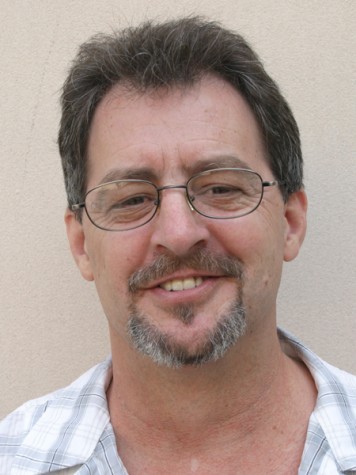State official Renee Zito was the featured guest at the second annual Addiction Summit 2010 held at the GCC Auditorium and the Student Service Center on Sept. 29.
The summit included counselors, clinicians and others from the community who gathered to speak and share their thoughts about substance abuse and addiction in California.
Appointed California Director of Alcohol and Drug Programs (ADP) by Gov. Schwarzenegger in 2007, Zito has had an extensive background within the treatment field. Zito has dedicated her career to helping people who suffer from addictions.
Zito has also served as the director of programs at Marin Services for Women since 2000, where she oversees and manages the staff for rehabilitation programs, housing and education services, as well as the admissions departments.
From 1994 to 1999, Zito was the executive director of the alcohol and drug treatment center in Hazelden, N.Y. Before that, she served as the director of treatment at Smithers Alcoholism Rehabilitation Center at St. Luke’s Roosevelt Hospital Center from 1986 to 1994, in New York City, N.Y.
“I believe that it is important for people to know that they can recover,” Zito said as the meeting began. Zito, a recovering alcoholic of 35 years, knows all too well the suffering of an addict.
The topic of discussion was the growing problem of untreated addiction in relation to the new health care reform bill, as brought up by nearly every individual in the room. The new law requires all group and individual plans to comply with the Wellstone/Domenici Parity Act, which requires that addiction and mental-health benefits be provided and covered in the same way as other medical benefits.
The law expands Medicaid eligibility to all Americans up to 133 percent of the federal poverty level, and requires that all newly eligible parents and childless adults receive basic benefits. It creates a national prevention council, with the director of the Office of National Drug Council Policy serving as an acting member. It also lists drug addictions as a national priority for the council’s report to Congress.
Finally, the law names behavioral healthcare workers as a high priority in the bill’s National Workforce Strategy section. It lists addictions and mental-health providers as being eligible for community health-team grants.
“People are going to be able to get treatment by 2014 as well, and the federal government will pay for treatment programs,” Zito said. “This is enormous. We have to professionalize our workforce [doctors, nurses, and all other medical doctors].”
Attendees of the meeting listened intently as Zito addressed the audience. There was energy in the room.
The work Zito and her team have done affects everyone in California in one way or another. She stressed that higher standards of living must be put into place, and that mediocrity must not be tolerated any longer. She believes patients deserve the highest level of care possible.
Treatment programs, such as rehabilitation centers, mental hospitals and institutions, and other recovery centers, have had been engaged in serious debate regarding the criticism of these programs.
“Addiction is a chronic disease that cannot be cured with 28 days of treatment,” Zito said in regard to rehabilitation programs. “People who have had simply one treatment in a rehab center and such will be allowed to return to treatment as much as they like if need be.”
Zito and the Department of Drug and Alcohol Programs have created a system in which patients can obtain counseling over the telephone. There are 18 different languages available for a variety of nationalities, making it easier to understand and communicate with counselors.
The assistance does not stop there. Zito said healthcare providers need to treat not only addictions, but the patient as a whole, both mentally and physically. The health care reform will provide the highest level of care possible for these patients.
Another important topic that was discussed was prevention, which is a major issue coming out of the White House. Zito stressed that prevention was not just about preventing relapse but preventing individuals from entering the drug world in the first place.
Zito said drugs and alcohol will always be a problem within our country and around the globe. The media flaunts this in several ways, such as advertising alcohol companies on television, and through mass advertising on outdoor billboards.
“Alcohol companies are in it for the buck. They make billions on teens and kids and we need to hold our legislature responsible for this,” Zito said. “Alcohol companies pay off the legislature.”
Zito’s heart-felt passion of providing assistance for those in the dark shadows of addiction will greatly help the Department of Alcohol and Drug Programs achieve their difficult mission.
The keynote address by Zito was followed by refreshments and then workshops addressing issues, such as behavioral therapy, and methamphetamine addiction.
Glendale’s Drug and Alcohol Studies program is accredited by the California Association Studies for Alcohol and Drug Educators and is designed to meet the certification requirements for both the California Association for Alcohol and Drug Educators and the California Association of Alcohol and Drug Abuse Counselors and other state certifying bodies.

